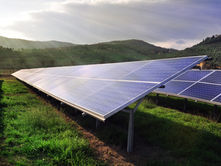top of page
All Articles


Zambia Powers Up: Renewable Energy Revolution Takes Center Stage
Zambia is part of the Africa Minigrids Program (AMP), a UNDP initiative focused on driving private-sector assessment of solar minigrids. They are doing this by implementing cost-reduction strategies and promoting innovative business models. The AMP is funded by the Global Environment Facility (GEF) and implemented in partnership with RMI and the African Development Bank.


In Zimbabwe, Mini-Power Stations are Driving Change
Mini-grids have the potential to transform Zimbabwe's rural communities, providing clean, reliable energy and driving economic growth. With continued investment and support, these initiatives can help bridge the energy access gap and improve the lives of millions of Zimbabweans.


The Movement toward Microgrids
The combination of new technologies and new methods of financing has set the stage for microgrids to play a major role in decarbonization. The method of providing energy as a service, and therefore moving the upfront cost away from consumers, has shown significant popularity. The falling costs of both battery storage and solar technology have made microgrids a more attractive option, while reports from the DoE emphasize the role they can play in grid stability and resiliency.


Colombia's Distributed Generation Potential
Incorporating new renewable projects, especially solar, into the matrix can take advantage of Colombia's naturally high radiation, reduce reliance on hydropower in the overall energy matrix, and allow communities currently relying on diesel to switch to a more sustainable option.


The Importance of New Technologies for Grid Development
By adopting new technologies now, utilities can build a transmission grid well-positioned for an efficient and resilient renewable-based economy.
bottom of page
